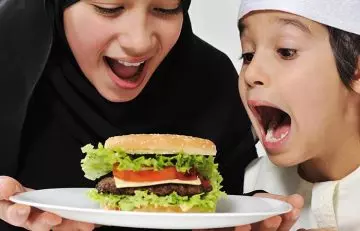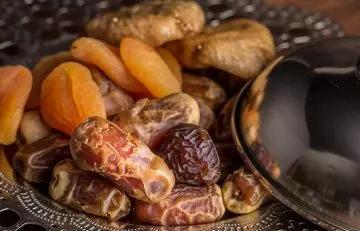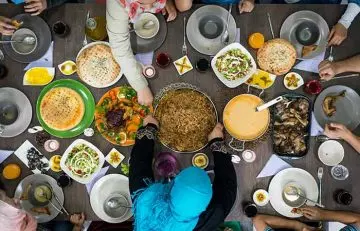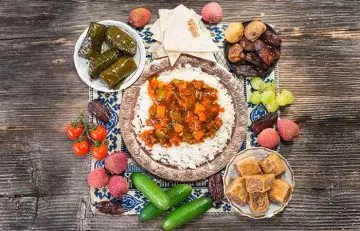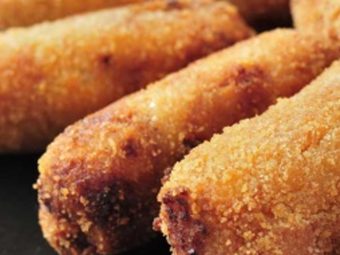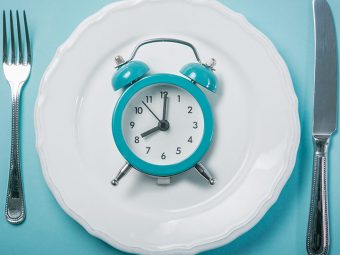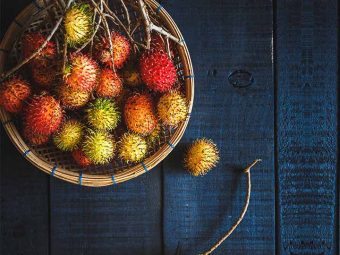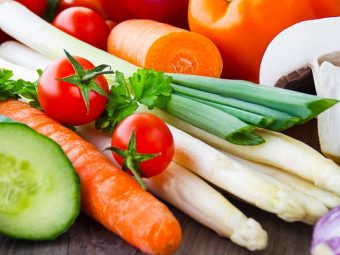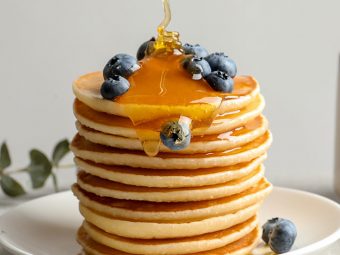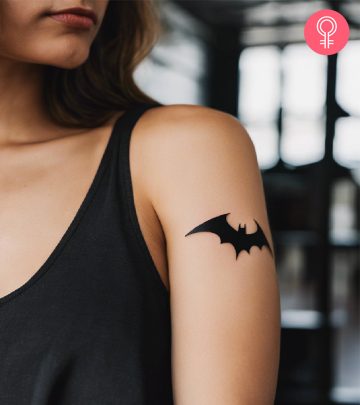How To Stay Fit In Ramadan? The Perfect Diet For Ramadan

Image: Shutterstock
From waking up in the early hours of dawn, fuelling ourselves with food and ample amount of water, to waiting till dusk, with a date in hand, Ramadan, the ninth month of the Islamic calendar, is all about self-control. May 6th marked the beginning of the holiest month, Ramadan, for Muslims in most countries across the world. During this month, Muslims from all walks of life devote themselves to a month-long period of abstinence from food, water, alcohol, smoking, physical relationships, entertainment and other activities that are considered as sinful or haraam, until sunset.
While self-restraint from entertainment and other prohibited activities may not affect one’s lives to a great extent, the absence of food and water during the daylight (11-22 hours, based on which part of the world you’re observing the fast from) is a deal breaker. So much that, while our dry lips, thirsty throat, and hungry stomach await the sun to set to its lowest, we conjure up images of sumptuous meals, fried samosas, rolls, cold drinks, and every possible edible thing in the world. We also ready these succulent items for ourselves on the table spread to savor them the minute the clock strikes iftaar — the designated time when the fast comes to an end for the day. We do this, day after day, until the last day when we finally realize that we’ve gained weight in the month that was all about fasting! How does this happen?
Reasons For Weight Gain During Ramadan
Isn’t it strange that some of us tend to put on a few extra pounds in the month of Ramadan when we are actually abstaining ourselves from the normal intake of food? Well, that’s because we make a common mistake of gorging on food (more than needed) and stocking up for the next day. Flash news: that’s what makes us gain weight.
If followed properly, it is totally possible to manage our weight or even lose some pounds with fasting. Here’s a list of reasons that are adding to your weighing scale.
- ou’re gorging on food from the time you break your fast till sunrise. You stuff yourself with food between sehri or suhoor (pre-dawn) and iftaar (dusk).
- You indulge in fried foods and consume foods that are high in calories.
- Afraid of being fatigued, you’re consuming larger portions of food.
- Post iftaar, you lead a lazy, and inactive evening.
- You’re consuming sodas and cold beverages that are high in sugar.
- You assume that because you were starving the entire day, you can eat how much ever you wish without putting on those extra kilos.
- You miss out on workouts and give yourself extra rest as a reward for the fasting.
Now that we’re aware of the culprits that add weight, let’s delve a little deeper into the details of staying fit during Ramadan.
Intermittent Fasting And Ramadan, Do They Aid Weight Loss?
Intermittent fasting is a weight loss approach that encourages the idea of skipping food and restricting calories for a specific number of hours (2). Studies have found that fasting can be a safe way to lose weight and that too while done in the manner of intermittent fasting; it helps the body to burn more fat cells than the usual. FYI: If you exercise for at least 30 minutes after a day of fasting, you will be burning more calories than on an average. Do more of cardio and less of weight training. This rapid weight loss happens because intermittent fasting pushes the body to generate energy from fat instead of sugar (3). This is why intermittent fasting is gaining popularity. If you wish to draw parallels, Ramadan is yet another form of intermittent fasting. Don’t you think?
What To Eat During Ramadan
In order to maintain a balanced and nutritious diet, lay emphasis on the fact that the meal shouldn’t be a feast but a simple meal. The meal should comprise foods from all groups of nutrition — fresh fruits, veggies, cereals, bread, proteins, dairy, and a negligible amount of sugar and fat. Trust us when we say that sugar isn’t all that sweet for your body, because it’s the numero uno cause for weight gain (1).
Here’s How Your Pre-Dawn Meal (Sehri/ Suhoor) Should Look Like
Suhoor (the pre-dawn meal) should comprise of foods that would give us energy for the whole day. This is usually derived from complex carbohydrates and high-fibre foods.
Foods like whole wheat, oats, beans, and rice are complex carbs that release energy at a gradual pace. On the other hand, fruits and vegetables are rich in fiber and get digested slowly through the day. Thereby, regulating your energy levels while you’re fasting. Also, don’t skip the fluids! The body needs a good amount of fluids to maintain normal water and salt levels. Replace the caffeinated drinks with fresh juices like orange juice, coconut water, etc. Here’s a quick lowdown on what you should eat and what you shouldn’t during sehri.
| Foods You Should Eat | Foods You Shouldn’t Eat |
|---|---|
| Protein rich food: Eggs, Lean meats, Pulses. These foods help you stay fuller for longer. | Avoid simple carbs and refined carbs Simple or refined carbohydrates are the foods that keep you full only for 3-4 hours. They are also low in essential nutrients. Avoid white flour, sugars,donuts, pastries, croissants, etc. |
| Fibre rich food: Oat meal serves as a perfect meal for your body as it is rich in fibre and slows down digestion. This helps in lowering the cholesterol and keeps the blood glucose levels at a perfect level to keep you energetic. Other options are fruits, vegetables, granola, muesli, etc. | Say no to salty food. The irregularities in sodium level makes one thirsty. So, avoid salted nuts, pickles, foods that contain soy sauce, chips, etc. |
| Calcium and vitamin rich food: To keep you full, dairy products are a great source of nutrition. Choose from milk, almonds, oranges, figs, cheese, etc.Have yogurt smoothie or a milkshake of your favourite food. It keeps you hydrated through the day and keeps you full. | Caffeinated drinks are a strict no-no when fasting. They not only make you long for water, but they also lead to insomnia and rapid water loss from the body. |
Here’s How Your Post-Dusk Meal (Iftaar) Should Look Like
Have you ever wondered why Muslims end their fast with dates and water? This custom, in fact, helps in restoring the sugar and salt levels in the body. However, care should be taken not to over-indulge in the Post-dusk meal. This meal should be high in proteins and should contain fats and carbs in moderation. A balanced meal prevents muscle breakdown and keeps you energetic. Here’s a quick lowdown on what you should eat and what you shouldn’t during iftaar.
| Foods You Should Eat | Foods You Shouldn’t Eat |
| Have potassium-rich foods like dates, banana, pomegranate, avocados, spinach, coconut water etc. It helps you stay hydrated and also restores energy quickly. | No matter how thirsty you are, avoid carbonated beverages. They are full of soda, sugar, and gas. |
| Lots of fluids: Have plenty of non-sweetened fluids. You can have fruit juices, water, and even coconut water between iftaar and sehri to avoid dehydration | Sweets, chocolates, halwa, ice crams, etc should be kept at a safe distance as they are an instant source of weight gain. High-Sugar foods are your worst enemy. |
| Have raw nuts like almonds and walnuts. These contain good fats.When your body is craving for fats after long hours of fasting, raw nuts is a good option to indulge in. | Fried and oily foods: Say no to those samosas, fried rolls, and greasy foods. These will just add calories and weight. |
| Hydrating vegetables: All vegetables have mineral content in them, but cucumbers, lettuce,spinach, etc are high in fibre. These veggies help in avoiding constipation, keep you hydrated, and make your skin healthy during Ramadan. | Processed foods: Foods bought from the market are not only rich in preservatives, but are also powerhouses of fat content and added calories. They make you lazy, fatigued, and inactive. |
Our Guide To Your Meals
If you’re breaking your head over the meal preparations for Ramadan, here’s a quick guide you can follow to stay fit and lose weight while you observe the fasts and indulge in worship this holy month. You can either make similar meals for yourself or you can follow the basic principle of no fat, more protein, and carbs in your Ramadan diet.
| Foods You Can Snack On | What You Can Eat For Sehri/Suhoor | What You Can Eat For Iftaar |
| Walnuts | Mango-Chia Pudding | Baked chicken drumsticks, or baked vegetable fries |
| Yogurt | Overnight oats with fruits | Chicken soup and mixed vegetables |
| Fruits | Egg-spinach-olives omelette | Dal and Chappathi |
| Coconut Water | Chicken Sandwich | Baked sweet potato fires, chicken breast/tuna/salmon with brown rice |
| Peanut Butter | Greek yogurt with granola/ muesli, topped with nuts | Grilled chicken and quinoa/ broken wheat preparations |
| Oat Bites | Banana, dates, and peanut butter smoothie | Chicken keema curry rolled into cabbage leaves and steamed |
| Trail mix with nuts and seeds | Boiled eggs with sautéed vegetables | Shredded chicken salad with chickpeas, choice of vegetables, and black beans |
While Ramadan is all about re-instating faith and abstaining oneself from the prohibited things, it’s important to take care of one’s health and diet too. We hope these tips and suggestions change the way you look at food habits this month and help you maintain a healthy diet. Ramadan Mubarak, folks!

